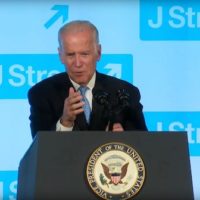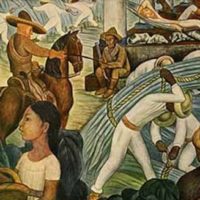-
Another sign of the deepening social crisis: The decline in U.S. life expectancy
U.S. life expectancy is on the decline, falling from 2014 to 2017—the first years of decline in life expectancy in over twenty years.
-
Using Marx as a pejorative to defend the ease of doing business: analysing the World Bank’s attack on CGD
The recent attack by a Senior World Bank Official, against the Centre for Global Development (CGD) has been rightly publicised on social media, for failing to engage with critique and misconstruing it as ideology.
-
WhatsApp and fake news, or how to kill democracy
Fears and anxieties are used to create and diffuse fake news and manipulate the electorate. This is what happened at the last Brazilian election. A group of researchers studied the case in order to develop a method to deal with fake news.
-
Ruling class bereft of answers while catastrophic fires escalate across Australia
New fires are expected to ignite, while strong winds are predicted to fan the hundreds of blazes that are already burning. Hundreds of thousands of people were urged yesterday to evacuate the most-at-risk areas.
-
Dem candidates are critical of Trump’s drone strike…but mostly are criticizing the Iranian general he killed
“No American will mourn Qassem Suleimani’s passing,” begins former Vice President Joe Biden’s statement, “He deserved to be brought to justice for his crimes against American troops and thousands of innocents throughout the region. He supported terror and sowed chaos.”
-
Stealing the wealth of nations
The international ‘wealth protection industry’ has outgrown the ability of legislation to control it. Assisted by the digital world, money can now be rapidly moved around the world to the most favourable jurisdiction. This tax competition undermines the economies of many countries to the detriment of social services.
-
Lukacs’s Marxist aesthetics
György Lukács’s views on aesthetics will be found in one of his two major mature works, The Specificity of the Aesthetic, the other one being Towards an Ontology of Social Being. They both constitute huge treatises.
-
‘World War III’ trends as Hawks rejoice at Trump decision to assassinate Iranian military leader
“Hawks are celebrating Soleimani’s assassination not because they believe it weakened Iran…But because they believe we have passed an irreversible point of escalation.”
-
How many millions did you make for the pennies you gave to the Coolies
As we enter the new year, protests across the planet continue unabated; rising levels of discontent are manifest in both progressive and reactionary directions. The political character of the anger might whip across the spectrum of opinion and hope, but the underlying frustrations are similar.
-
The spooks’ choice: Coup plotters and CIA agents fill Pete Buttigieg’s list of national security endorsers
Why are so many intelligence veterans throwing their weight behind a young Indiana mayor with such a thin foreign policy resume?
-
Colonialism and the natives
Moshé Machover begins an examination of the Israel-Palestine conflict by looking back at controversies in the Second International
-
The perversity of the neo-liberal fiscal regime
When income growth slows down in an economy, so does the growth of tax revenue within the given tax regime. Since the government has certain expenditure obligations, to meet these obligations it has to either impose additional taxes or expand its fiscal deficit.
-
Social Media and social control: How Silicon Valley serves the U.S. State Department
Facebook isn’t the only Silicon Valley firm with partisan oversight of what we see: the bipartisan billionaire class and their security state have partnered with tech firms since the dawn of the internet to control the parameters of users’ thinking.
-
WaPo’s Afghan papers propagate colonial narrative of noble intentions gone awry
In an earlier article (FAIR.org, 12/18/19) regarding the Washington Post’s Afghanistan Papers (12/9/19), I discussed how the Post’s exposé also exposed the Post as one of the primary vehicles U.S. officials use to spread their lies, and why it’s impossible for corporate media outlets like the Post to raise more substantive questions about the deceptive nature of U.S. foreign policy.
-
Social program meets goal, delivers 3 million homes
The new goal of the social housing program is to deliver at least 500,000 new dwellings in 2020.
-
Marx’s concept of socialism
The discussions and debates that have accompanied the 200th anniversary of Karl Marx’s birth since 2018 have provided an important opportunity to re-examine heretofore neglected aspects of his political and philosophical legacy. Foremost among them is the extent to which his body of work provides conceptual resources for developing a viable emancipatory to capitalism in the 21st century.
-
Lexit would have won. Part 2: Class, Remain, and the commentariat
We lost. In Part I the archaeology of our defeat was made clear: Remain killed us. But to fully realise how this happened we need to look at the deeper political substrate on which the rot of left Remainism has grown: the ongoing collapse of the political centre, writes GEORGE WEST
-
Lexit would have won. Part I: How Remain lost the election
In Part I ALEX BIRCH charts our defeat and how we could have won. See Part II for an examination of the politics that engineered our failure, and how to fight them.
-
We are the ones who will awaken the dawn
Millions of people are on the streets, from India to Chile. Democracy is both their promise and it is what has betrayed them. They aspire to the democratic spirit but find that democratic institutions–saturated by money and power–are inadequate. They are on the streets for more democracy, deeper democracy, a different kind of democracy.
-
Bolivia’s free territory of Chapare has ousted the coup regime and is bracing for a bloody re-invasion
Spending time with the union members of Chapare, who run society in a collective fashion, offers special insights into the resistance to the coup. They succeeded in expelling the police, but now fear a bloodbath in retaliation.



















